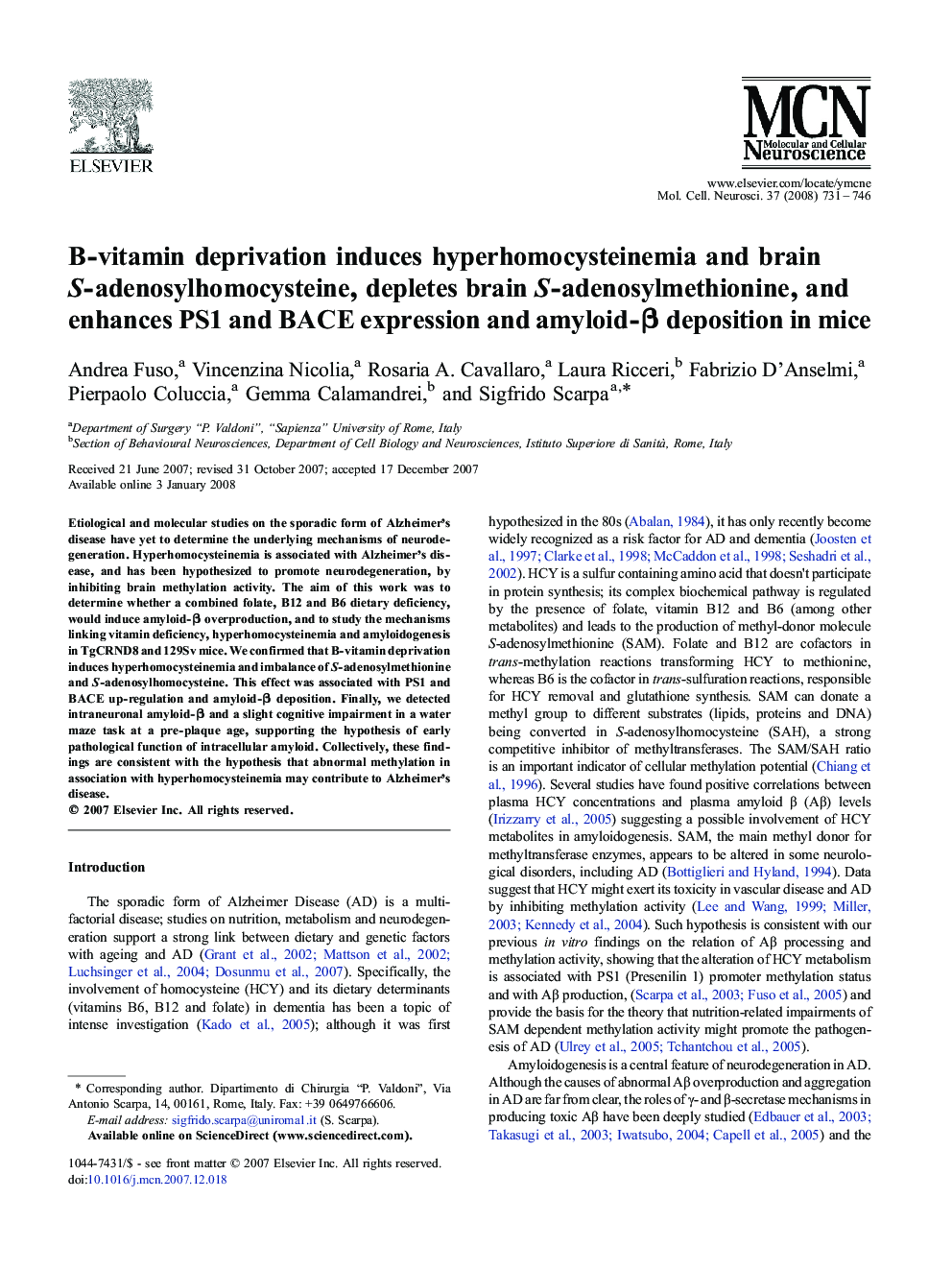| Article ID | Journal | Published Year | Pages | File Type |
|---|---|---|---|---|
| 2199126 | Molecular and Cellular Neuroscience | 2008 | 16 Pages |
Etiological and molecular studies on the sporadic form of Alzheimer's disease have yet to determine the underlying mechanisms of neurodegeneration. Hyperhomocysteinemia is associated with Alzheimer's disease, and has been hypothesized to promote neurodegeneration, by inhibiting brain methylation activity. The aim of this work was to determine whether a combined folate, B12 and B6 dietary deficiency, would induce amyloid-β overproduction, and to study the mechanisms linking vitamin deficiency, hyperhomocysteinemia and amyloidogenesis in TgCRND8 and 129Sv mice. We confirmed that B-vitamin deprivation induces hyperhomocysteinemia and imbalance of S-adenosylmethionine and S-adenosylhomocysteine. This effect was associated with PS1 and BACE up-regulation and amyloid-β deposition. Finally, we detected intraneuronal amyloid-β and a slight cognitive impairment in a water maze task at a pre-plaque age, supporting the hypothesis of early pathological function of intracellular amyloid. Collectively, these findings are consistent with the hypothesis that abnormal methylation in association with hyperhomocysteinemia may contribute to Alzheimer's disease.
